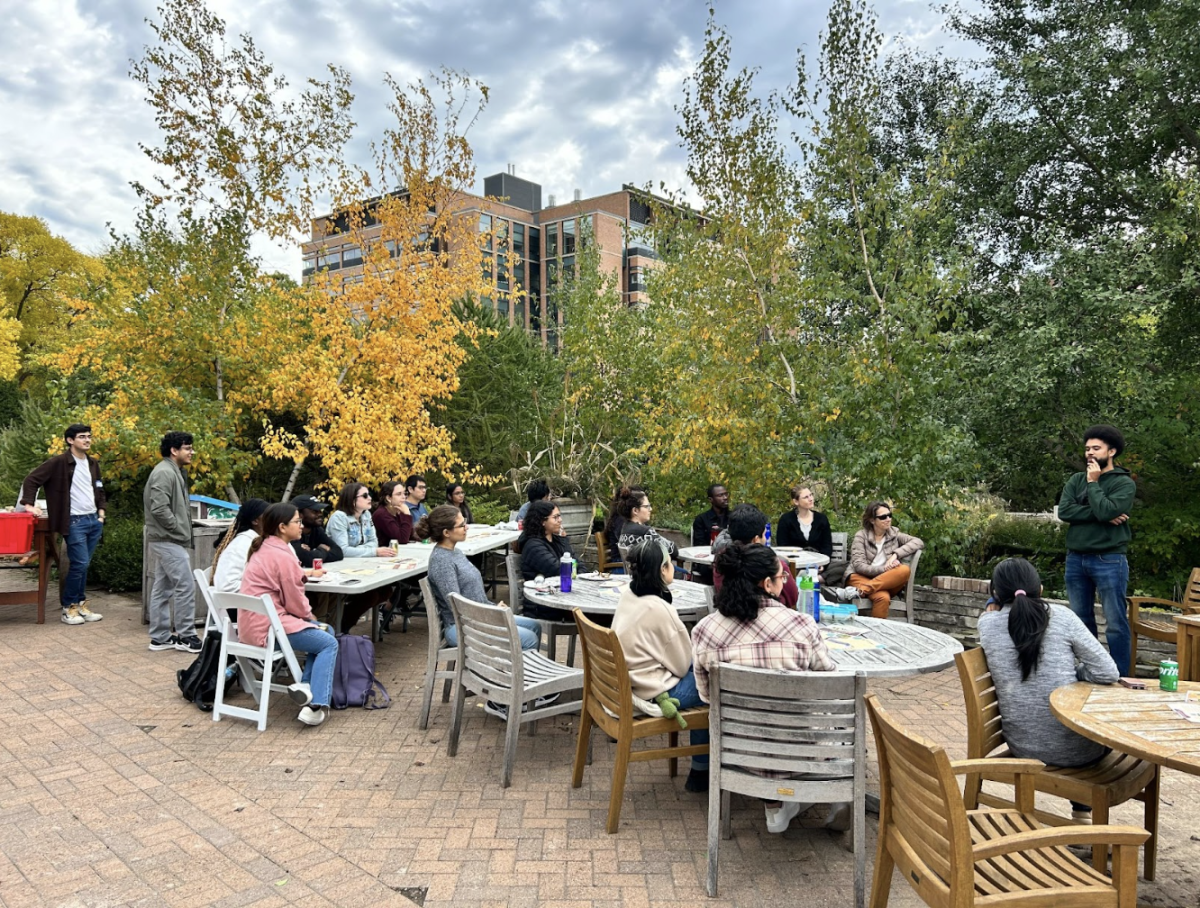Mentorship Opportunities in Science & Agriculture for Individuals of Color is a campus organization that nurtures community by connecting Black, Indigenous and graduate students, postdocs and mentors of color in science and agriculture departments at the University of Wisconsin.
Following the murder of Ahmaud Arbery, a 25-year-old Black man from Georgia, then-graduate student Korede Olugbenle hoped to bring the lack of Black representation in Moore Hall-Agronomy at UW to light, according to the MOSAIC website. With fellow graduate students, Jenyne Loarca and Becca Honeyball, Olugbenle developed a solution — MOSAIC.
According to the UW 2022–23 data digest, 59.9% of the whole student body and 47.9% of the graduate student body identify as white.
A report from the National Student Clearinghouse analyzed the persistence and retention rates at public four-year institutions, finding the rates for Asian and white students have consistently remained higher than their Latinx and Black counterparts. These rates in early post-secondary education translate to continued disparities at higher levels.
According to Director of the Endocrinology and Reproductive Physiology Graduate Program and MOSAIC mentor Dr. Lauren Hernandez, this may be related to the lack of diverse representation in the higher levels of academia.
The student-led organization works with faculty in the College of Agricultural Life Sciences as allies in their mission. Hernandez was a member of the CALS Equity and Diversity Committee when the organization started.
“Issues were being brought up about equity and diversity and inclusion in general, but it was really obvious that we had a major gap in graduate students’ support,” Hernandez said.
MOSAIC offers professional mentorship, graduate peer support networks and community events to create a space for Black, Indigenous and graduate students of color to connect on campus. Ph.D. candidates Ana María Vázquez-Catoni and Daniela Orjuela Díaz are the MOSAIC mentorship program co-coordinators.
MOSAIC’s professional mentorship program is a free, convenient and time-efficient opportunity for students to gain support and guidance through academic endeavors, Vázquez-Catoni said. In addition to the professional mentorship program, MOSAIC offers the Graduate Peer Support Network and community events, which strengthen connections between the students in the organization.
“Even though we come from different backgrounds and different experiences, we share a common goal of getting through grad school,” Díaz said. “So being able to help other grad students going through that path is really important.”
The MOSAIC team facilitates an anonymous matching process followed by a meeting with the prospective mentees and mentors to discuss both of their expectations before the match is official. Ph.D. candidate and admin board member Francisco Campos-Arguedas said these relationships are very valuable.
It’s not always comfortable speaking with advisors about future aspirations or personal struggles because of interpersonal expectations generated by the academic hierarchy. Former MOSAIC mentee and current admin board member Ophelia Tsai said relationships with a MOSAIC mentor extend beyond professional relationships to create a feeling of community.
“There’s an extra support, an extra pair of ears that are listening to you,” Tsai. “They care about your personal life, about your feelings, about what you’re struggling with.”
In addition to fostering community, MOSAIC stands to redefine mentorship norms and demonstrate that representation matters in higher education and academia. Vázquez-Catoni said many students have experienced toxic or difficult mentoring situations.
As an administrator, Vázquez-Catoni is responsible for finding ways to redefine mentoring to facilitate a proper, positive mentorship experience and the environment in which it can occur.
Originally from Costa Rica, Campos-Arguedas did not see a lot of representation in the UW student body. He connected with a faculty member from Guatemala through MOSAIC, and while they came from different countries, they bonded over shared roots and experiences, Campos-Arguedas said.
“She helped me so much to develop a sense of belonging and feeling that there is a possibility of something like her,” Campos-Arguedas said. “I see her example and that there is someone here who represents what I have. That’s similar skin color, the same language, and she also has an accent. It’s like … it’s possible to do these things.”
Last year, MOSAIC collaborated with UW’s Minorities in Agriculture, Natural Resources & Related Sciences and the CALS Equity and Diversity Committee to organize a summit called Beyond the Table, which gave students a space to connect and build on their understanding of food justice.
MOSAIC plans to continue expanding its network in the future, collaborate with other allies on campus and find ways to reach an even larger audience, Vázquez-Catoni said. Tsai hopes to eventually see MOSAIC as a system that is a part of every department at UW.
“Identity really matters and being able to see yourself in a spot is what I think often leads to success … not seeing yourself there is a really big uphill battle,” Hernandez said.


